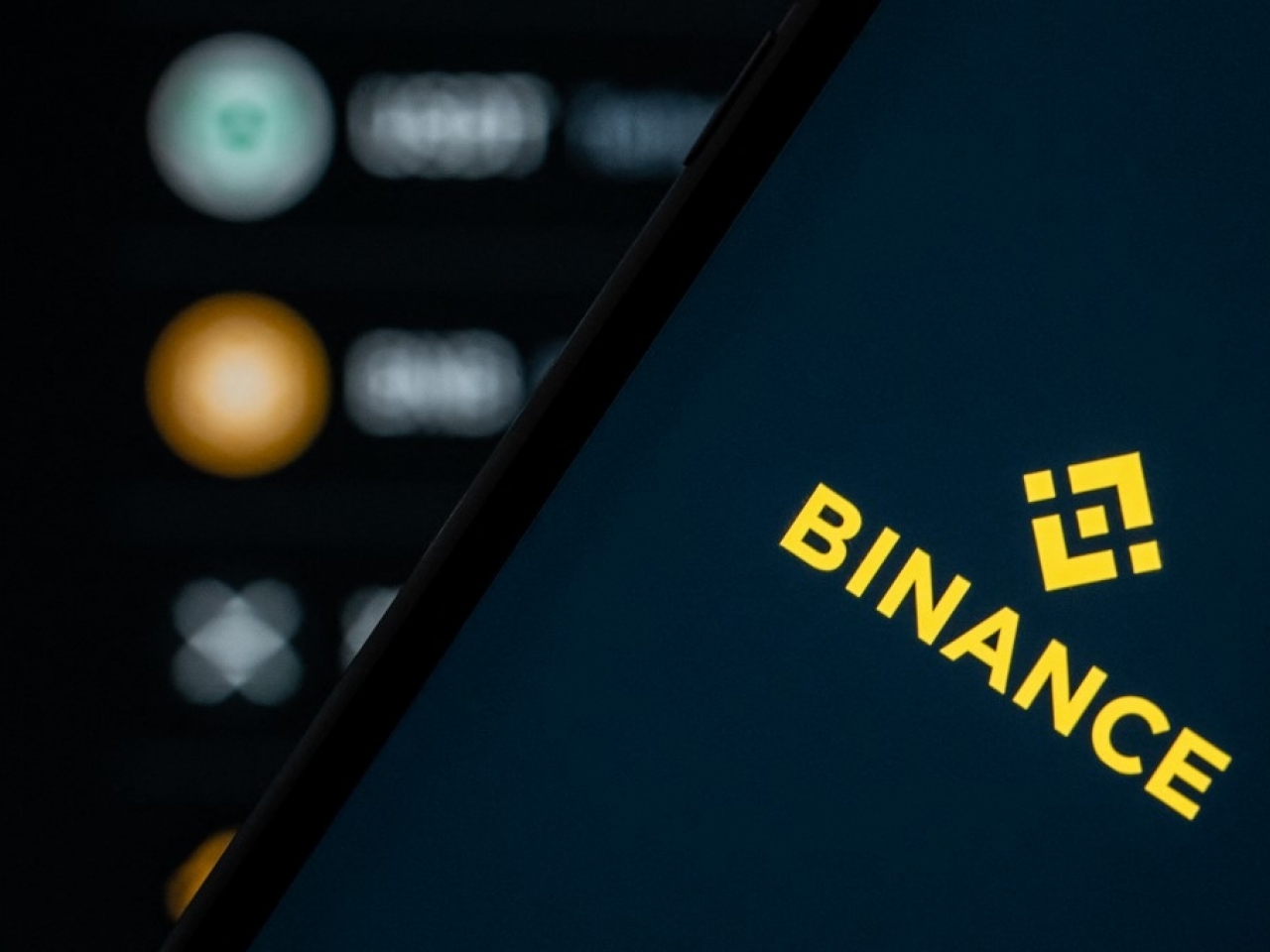US Department of the Treasury Arrest and Sanction Tornado Cash Co-founder
Tornado Cash Co-founder Arrested and Sanctioned by US TreasuryCompilation: Wu Shuo Blockchain
The US Department of the Treasury announced a new OFAC SDN sanctions list on August 23, including Roman Semenov, co-founder of Tornado Cash. The announcement shows that he is a Russian national who resided in Dubai and lists his 8 Ethereum addresses.
Email address:
- Binance Labs invests in DeFi yield protocol Pendle Finance.
- LianGuai Morning News | Membrane Finance launches the first Euro stablecoin EUROe.
- a16z Partner 4 Theories for the Development of the Creator Economy
Alternate email address:
[email protected]; [email protected];
Cryptocurrency addresses:
ETH 0xdcbEfFBECcE100cCE9E4b153C4e15cB885643193;
Alternate cryptocurrency address:
ETH 0x5f48c2a71b2cc96e3f0ccae4e39318ff0dc375b2;
ETH 0x5a7a51bfb49f190e5a6060a5bc6052ac14a3b59f;
ETH 0xed6e0a7e4ac94d976eebfb82ccf777a3c6bad921;
ETH 0x797d7ae72ebddcdea2a346c1834e04d1f8df102b;
ETH 0x931546D9e66836AbF687d2bc64B30407bAc8C568;
ETH 0x43fa21d92141BA9db43052492E0DeEE5aa5f0A93;
ETH 0x6be0ae71e6c41f2f9d0d1a3b8d0f75e6f6a0b46e;
The announcement cites the regulations as: secondary sanctions risk, Section 510.201 and 510.210 of the “North Korea Sanctions Regulations,” prohibiting transactions by persons owned or controlled by US financial institutions.
The following is the translation of the original press release from the US Department of the Treasury:
On August 23, the Office of Foreign Assets Control (OFAC) of the US Department of the Treasury imposed sanctions on Roman Semenov, one of the three co-founders of the cryptocurrency mixer Tornado Cash, on the grounds that he provided material support to Tornado Cash and the Lazarus Group, a state-sponsored North Korean hacking organization. Since its creation in 2019, Tornado Cash has been used for money laundering by criminals, including to launder hundreds of millions of dollars in virtual currency stolen by the Lazarus Group.
This sanction decision was carried out in coordination with the Department of Justice (DOJ) of the United States, which today filed charges against Semenov and the second co-founder of Tornado Cash, Roman Storm, who was arrested today by the Federal Bureau of Investigation and the Criminal Investigation Department of the Internal Revenue Service. The DOJ has charged Semenov and Storm with conspiracy to launder money, conspiracy to operate an unlicensed money transmission business, and conspiracy to violate sanctions. The third co-founder of Tornado Cash, Alexey Pertsev, was arrested in the Netherlands in August 2022 by Dutch law enforcement authorities on charges related to money laundering.
The Lazarus Group was sanctioned by the United States in 2019. In March 2022, it launched an attack on Axie Infinity’s Ronin cross-chain bridge, using Tornado Cash to cover up the flow of stolen funds totaling over $455 million, making it the largest known cryptocurrency theft to date. Subsequently, the Lazarus Group used Tornado Cash to launder over $96 million stolen from the Horizon bridge of Harmony on June 24, 2022, as well as at least $7.8 million stolen in the Nomad theft case on August 2, 2022. This income provided resources for North Korea to support its illegal ballistic missile and nuclear weapons programs.
Wally Adeyemo, Deputy Secretary of the U.S. Treasury, said, “Even after knowing that the Lazarus Group was using their mixing service to launder hundreds of millions of dollars worth of stolen cryptocurrency for North Korea, the founders of Tornado Cash continued to develop and promote the service without taking substantive measures to reduce its illicit use.” “Today’s actions by IRS-CI and OFAC demonstrate the Treasury Department’s commitment to continue investigating those who operate recklessly and support dangerous virtual currency mixing services that threaten our national security.”
Today’s charges and indictments build upon earlier actions, revealing some elements of the cryptocurrency ecosystem, including the Lazarus Group, used to conceal the sources and destinations of their illicit activities. This also highlights the Treasury Department’s commitment to protecting the integrity of our financial system, including the cryptocurrency ecosystem, and undermining the ability of the North Korean regime to raise funds through illicit activities.
In 2022, OFAC sanctioned Tornado Cash and Blender.io, both of which provided mixing services to the Lazarus Group. This year, OFAC also sanctioned two over-the-counter virtual currency traders who facilitated the conversion of stolen virtual currency into fiat currency, providing services to North Korean actors working with the Lazarus Group. Tomorrow, the Financial Crimes Enforcement Network (FinCEN) of the Treasury Department will host a FinCEN Exchange focused on countering North Korean abuse of the digital ecosystem, including representatives from the Treasury Department, law enforcement agencies, and financial sector. The Treasury Department will continue to utilize all tools at its disposal to address North Korea’s illicit financial threats in cyberspace.
Roman Semenov: Key Developer of Tornado Cash
Roman Semenov, a Russian citizen, co-founded Tornado Cash as a mixing service to increase the anonymity of user transactions. Semenov actively promoted Tornado Cash through media and online platforms, providing advice to Tornado Cash users on how to make their transactions anonymous. Despite being warned that Tornado Cash was being used to launder large amounts of stolen cryptocurrency for the Lazarus Group, he and his partners continued to maintain the infrastructure supporting the Tornado Cash service and took measures to increase the anonymity of the Tornado Cash service, but did not take appropriate steps to address the known illicit use by North Korea.
In April 2022, Xiemianov learned about an Ethereum address publicly attributed to the Lazarus Group and listed on the Specially Designated Nationals and Blocked Persons List (SDN List), which contained stolen funds worth $620 million Ronin, and the funds were being sent through the Tornado Cash service. Xiemianov and his partners established a front-end sanction screening service, but they knew it was easy to evade and did not take sufficient measures to address North Korea’s active abuse. Despite having information from publicly available blockchain analysis and media queries, Xiemianov consistently ignored or downplayed the evidence of Tornado Cash being used to launder virtual currencies for North Korea and continued to participate in the operation and maintenance of the Tornado Cash service, without taking meaningful action to prevent or mitigate the risk of laundering proceeds of illicit activities following subsequent well-known theft incidents.
The Office of Foreign Assets Control (OFAC) of the U.S. Department of the Treasury imposed sanctions on the Lazarus Group on September 13, 2019, pursuant to Executive Order (E.O.) 13722, designating it as an agency, instrumentality, or controlled entity of the North Korean government. The Lazarus Group has been operating for over a decade and has stolen over $2 billion worth of digital assets in multiple thefts. Under the pressure of strong U.S. and United Nations sanctions, North Korea has resorted to illegal means, such as cyber-enabled heists carried out by the Lazarus Group, to raise funds for its illicit mass destruction and ballistic missile programs.
Xiemianov was designated for sanctions under E.O. 13694, as amended by E.O. 13757, for having materially assisted, sponsored, or provided financial, material, or technological support for any activities described in subsection (a)(ii) or (a)(iii)(A) of E.O. 13694, as amended, or for providing goods or services to any person whose property and interests in property were blocked pursuant to E.O. 13694, as amended; and for having materially assisted, sponsored, or provided financial, material, or technological support for the North Korean government, or for providing goods or services to any person whose property and interests in property were blocked pursuant to E.O. 13722.
Sanctions Impact
As a result of today’s action, all property and interests in property of the designated individuals that are in the United States or in the possession or control of U.S. persons must be blocked and reported to OFAC. OFAC regulations generally prohibit all transactions by U.S. persons or within the United States (including transactions conducted through the United States) that involve any property or interests in property of blocked or designated persons.
In addition, individuals engaging in certain transactions with the designated persons identified today may themselves be exposed to designated risk.
The power and integrity of sanctions stem not only from OFAC’s ability to designate and add individuals to the Specially Designated Nationals and Blocked Persons List (SDN List), but also from OFAC’s willingness to remove individuals from the SDN List in accordance with the law. The ultimate goal of sanctions is not punishment, but to bring about positive change in behavior. For information on the process of seeking removal from OFAC’s lists (including the SDN List), please refer to OFAC’s FAQ 897. For detailed instructions on submitting a request for removal from OFAC’s sanction list, please consult OFAC’s website.
We will continue to update Blocking; if you have any questions or suggestions, please contact us!
Was this article helpful?
93 out of 132 found this helpful
Related articles
- Inventory of the Top Five Leaders in the Ethereum Layer 2 Track
- Evening Must-read|How does intentional trading support the next wave of Web3 narrative?
- Why not choose L2 native tokens as the Gas tokens for Rollup?
- BTC mining difficulty jumps 6% to a new high, hash rate indicates high confidence
- Modular Rollup Mantle Current Status and Interaction Guide
- Why not use protocol tokens as gas tokens for rollups?
- Opinion The general profit effect of Friend.tech will gradually disappear.





